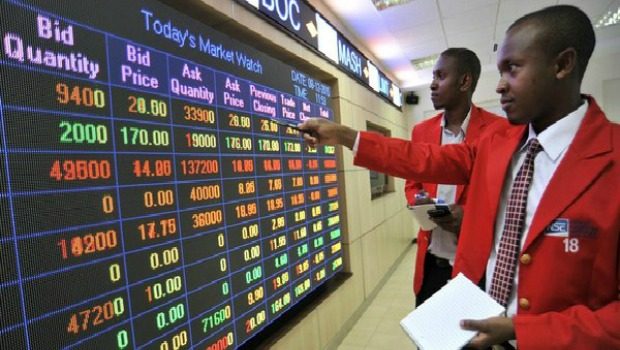The Dar es Salaam Exchange (DSE) Stock is a testament to Tanzania’s journey towards economic growth, monetary improvement, and integration into the worldwide funding landscape. Since its inception, the DSE has evolved incredibly, reworking from a modest marketplace to a vital player inside the location’s monetary sector.
The roots of the Dar es Salaam Stock Exchange may be traced back to the 1990s whilst Tanzania initiated marketplace-oriented financial reforms. In 1996, the DSE changed installed to create a platform for groups to raise capital, encourage investment, and facilitate the buying and selling of securities. Its foundation marked a sizeable step in transitioning from a centralized to a marketplace-driven economy.
Key Milestones
Initial Listings and Market Expansion: The DSE began its journey with the best 4 indexed corporations in 1998. These organizations represented sectors, which include banking, manufacturing, and agriculture. Over the years, the alternate has witnessed tremendous growth in indexed companies, sectors, and market capitalization.
Automation and Technological Advancements: In 2013, the DSE implemented an automated trading device, changing the open outcry device. This technological upgrade streamlined buying and selling methods, enhanced transparency, and progressed performance, bringing the DSE consistent with international requirements.
Cross-Border Listings: The DSE completed a fantastic milestone in 2016 and welcomed cross-border listings from Kenya and Rwanda. This pass promoted nearby integration and facilitated entry to capital for agencies from neighboring international locations.
Introduction of Exchange-Traded Funds (ETFs): The DSE brought its first ETF in 2017, allowing traders to diversify their portfolios with exposure to numerous sectors and assets.
Financial Inclusion Efforts: The DSE has actively promoted financial inclusion through tasks like the Growth Enterprise Market Segment (GEMS), which presents a platform for small and medium-sized corporations (SMEs) to access capital markets.
Challenges Faced by the Dar Es salaam Stock Exchange
Despite its brilliant evolution, the DSE has encountered numerous demanding situations along the manner:
Liquidity Constraints: The DSE has grappled with issues of liquidity, in which buying and selling volumes have sometimes been decreasing than preferred. This has confined the elegance of the trade to each neighborhood and overseas traders. In 2023, the Dar es Salaam Stock Exchange (DSE) grapples with enormous liquidity constraints affecting buyers.
Limited buying and selling volumes and thin marketplace interest can result in challenges in executing buy and promote orders efficiently, doubtlessly inflicting rate volatility. These liquidity constraints may deter nearby and foreign buyers from participating in the market, hindering the DSE’s ability to attract a broader investor base and recognize its complete ability for financial growth.
Limited Investor Awareness: Many Tanzanians stay unaware of the benefits of investing in the stock marketplace, leading to a loss of retail participation. Many capability buyers continue to be ignorant of the benefits and opportunities supplied by the DSE, resulting in subdued retail participation and reduced trading hobbies.
For instance, despite the DSE’s efforts to diversify its services and attract new listings, the lack of investor cognizance has hindered the exchange’s ability to create colorful and dynamic market surroundings that might force an economic boom and capital formation in Tanzania.
Regulatory and Governance Concerns: Ensuring the proper regulatory oversight and keeping sturdy company governance practices are ongoing demanding situations that the DSE continues to deal with. The complexity and inconsistency of listing necessities, the stringent criteria, and the shortage of harmonization amongst regulatory bodies can deter capability agencies from searching for a list on the DSE, proscribing its capacity to draw numerous issuers. This hurdle hampers the trade’s boom potential and restricts the enlargement of the capital market in Tanzania.
Notable Examples of Evolution
Vodacom Tanzania Plc: In 2017, Vodacom Tanzania became the primary business enterprise to list at the DSE below the telecommunications region. Its success list signaled the trade’s ability to draw essential industry players.
CRDB Bank Plc: CRDB Bank, certainly one of Tanzania’s largest banks, changed into the primary to list at the DSE in 2009. Its list validated the DSE’s position in facilitating capital raising for the financial zone.
Cross-Border Listings: The cross-border listings of Kenyan Airways and Rwandan Airway groups on the DSE exemplify the trade’s efforts to foster regional integration and cooperation.
NMB Bank Plc: The National Microfinance Bank’s list at the DSE 2008 marked a vast step closer to selling financial inclusion and broadening participation within the stock marketplace.
Future Prospects and Conclusion
As of 2023, the Dar es Salaam Stock Exchange is pivotal in its evolution. The exchange has made good-sized strides in its efforts to decorate transparency, appeal to foreign funding, and sell economic boom. Despite its challenges, the DSE’s dedication to innovation, generation, and nearby cooperation bodes nicely for its future potential.
The evolution of the DSE reflects Tanzania’s broader adventure in the direction of economic development, and its position as a catalyst for funding and financial inclusion can’t be overstated. As the exchange continues to conform to converting market dynamics, cope with demanding situations, and seize opportunities, its tale will spread as a beacon of development in Tanzania’s economic landscape.
DSE faces numerous challenges that warrant strategic solutions. One key avenue to cope with its troubles lies in robust regulatory measures carried out by the government. Strengthening and enforcing transparent regulations will beautify investor self-assurance, mitigate risks, and ensure truthful and efficient market operations.
Straightforward tips on list requirements, reporting requirements, and corporate governance will encourage extra groups to sign up for the exchange, growing liquidity and diversity. Additionally, the government can collaborate with marketplace contributors to set up investor schooling applications, promoting a higher knowledge of the stock market and inspiring broader participation.
By prioritizing regulatory improvements and fostering transparency and accountability, the DSE can pave the way for Tanzania’s extra resilient, aggressive, and rich economic marketplace atmosphere.

